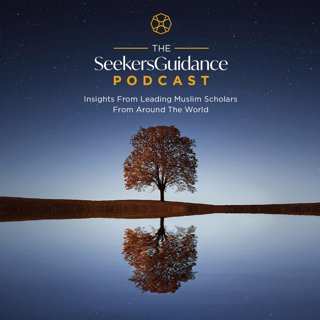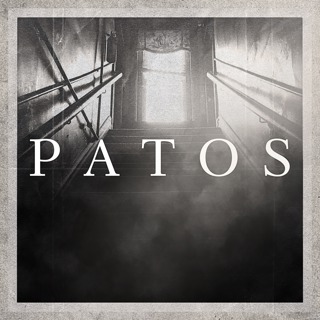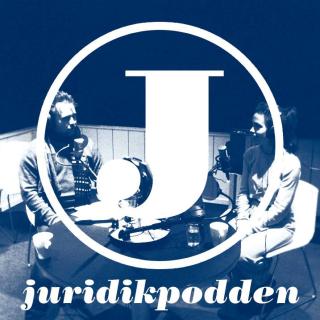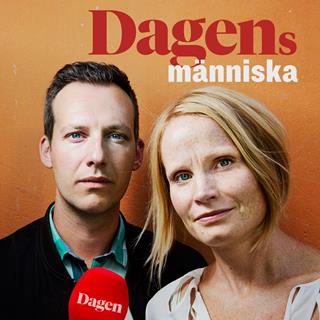
Answering a Call to Prayer and Its Lessons- Shaykh Faraz Rabbani
In this Khutba talk, Shaykh Faraz Rabbani reminds us of the importance of showing gratitude and thanks for the immense blessings that Allah has bestowed upon us. The call of prayer (athan) is one such blessing which is laden with meanings. Our nature is such that we tend to focus on past events or to preoccupy ourselves with assumptions of the future. We end up forgetting the importance of the present and the innumerable blessings Allah has placed within it for each of us. With Ramadan on our doorsteps, it is incumbent that we change our mindsets and become mindful of what Allah has provided for us, and then show sincere gratitude in our actions. Become mindful of what you have now, as there is no guarantee that you will live to see the immediate or distant future. “If you want to make the most of life then know that the greatest moment that you have is the moment that you are in.” Shaykh Faraz emphasizes that one of the greatest blessings that we ignore is the call to prayer (athan). The call to prayer has rights upon us that we have to fulfill. It is a gift from Allah that we should not refuse at any cost. However, many Muslims in today’s time tend to ignore its call and importance. By fulfilling the rights of the call of prayer, we have an opportunity to benefit from its external and internal realities, and to manifest the epitome of its call – success. Shaykh Faraz reiterates that whatever Allah has obligated us within our daily lives is only in reality a pathway to Paradise for us. Do not look at religious obligations as a burden, rather realize that God obligates success for us through his religious commands. Shaykh Faraz concludes the Khutba by advising the congregation to make the most of the month of Ramadan by learning about its virtues and benefits. Delivered during the SeekersGuidance Tour of Vancouver, British Columbia, Canada.
28 Apr 201925min

01- The Art of Reading – Shaykh Ahmed Hussein El Azhary
In this new podcast series, Shaykh Ahmed Hussein El Azhary will discuss why the art of reading is critical for students of knowledge to master. One of the greatest barriers in mastering a science is the inability to read with structure and comprehension. In this series, Shaykh Ahmed will provide students with a detailed approach to rectifying this problem. In addition to offering practical tips and guidance in improving one's reading and learning skills, Shaykh Ahmed will also elaborate on the development of the instrumental (foundational) sciences within the Islamic tradition and how they compare to medieval and modern theories of literary comprehension. In this episode, Dr. Yusuf Patel asks Shaykh Ahmed Hussein El Azhary why many students of knowledge are not able to read and master texts that they have studied. In addition to answering the above question, Shaykh Ahmed discusses the various phases of mastery that students should attain during their studies, and how the science of learning developed in the classical Islamic period and in modern times. Biography of Shaykh Ahmed Hussein El Azhary: Shaykh Ahmed El Azhary is a researcher in Islamic intellectual history and a teacher of Islamic traditional sciences. He’s currently a teacher of Hadith, Usūl, Logic, and Kalam at Rawdatul-Na`īm under the supervision of Habib `Ali al-Jifrī; and at Madyafat Shaykh Ismaīl Sadiq al-`Adawī (RA), a prominent learning center by al-Azhar Mosque in Cairo. Formerly, Shaykh Ahmed worked as a Lead Researcher at Tabah Foundation. He was appointed by Habib `Ali al-Jifrī to architect the philosophical framework of Suaal initiative – an initiative concerned with modeling an Islamic philosophical response to contemporary existential questions, supervised by Shaykh `Ali Jumu`ah, Habib `Umar and Shaykh Usama al-Azhary. Shaykh Ahmed continues to participate in Suaal initiative through essays, public lectures, and workshops. Shaykh Ahmed studied Anthropology at American University in Cairo and received his training in Leadership Communication from Tulane University and The University of Alabama at Birmingham. He is also a life-long learner. He holds a diversified portfolio of almost 50 certificates in a variety of subjects – extending from Teaching Character and Clinical Psychology of Children and Young People to Complexity Theory, Model Thinking and Conflict Analysis. Shaykh Ahmed began his journey of studying traditional sciences about 20 years ago. In addition to studying with scholars from al-Azhar, he had the privilege of studying with visiting scholars from Algeria and India in a one-on-one format and was thus given an exceptional opportunity to study and discuss advanced-level texts of different sorts and over a long period of time. Shaykh Ahmed has more than 70 Ijazas from scholars from all over the Muslim world.
24 Apr 201928min

Ready for Ramadan: The Lessons of Mindfulness, Gratitude, Qur’an, Glorification, and Closeness in the Month of Fasting-Shaykh Faraz Rabbani
Shaykh Faraz Rabbani shared five key spiritual lessons related to fasting and the month of Ramadan. These same lessons are a means to prepare for Ramadan and reflection upon changing our relationship with Allah. These lessons of fasting and Ramadan are taken from verses 183-187 of Sura al-Baqara, and are nurturing: (1) A living relationship with the Qur'an; (2) Mindfulness (taqwa) of Allah; (3) Gratitude (shukr); (4) Magnifying Allah (takbir), by making Allah the greatest concern in our lives; and (5) the most important--and ultimate--aim of fasting: realizing the reality of Allah's Closeness. This khutba was delivered at the Bosnian Islamic Centre, as part of SeekersGuidance Canada's community outreach and engagement.
21 Apr 201917min

Ascension Through Prayer and Pardon- Shaykh Sadullah Khan
This is a talk by Shaykh Sadullah Khan, who is a leading Islamic Scholar from South Africa. In this talk, he discusses the pertinent lessons we can derive from the Night Journey and Ascension of the Prophet (peace be upon him).
12 Apr 201930min

Knowledge & Sacrifice Build Muslim Communities- Shaykh Yahya Rhodus
In this keynote address delivered at SeekersGuidance's New Home benefit luncheon, Shaykh Yahya Rhodus explains the crucial role knowledge plays in bringing communities to life and the importance of sacrifice to spread knowledge. Shaykh Yahya begins by reading a memorandum on the state of our community and the challenges its leaders face, explaining how it fits into the agenda set by their illuminated teachers: “If you can’t plow seeds, so plow the land so that it is fertile enough for the next generation to plant seeds.” He also draws attention to the vision, foresight, and sacrifice of SeekersGuidance's founder Shaykh Faraz Rabbani. Next, Shaykh Yahya stresses the importance of knowledge and religious education, necessary for holistic Islamic living in the world today. He highlights the importance of building and laying foundations, and the crucial role of institutions like SeekersGuidance in preserving the wellbeing of the community. Shaykh Yahya closes by reminding that knowledge is the number one way to bring a heart, family, community, and society to life. Knowledge should be an excuse for other things, not vice versa. We should make knowledge a priority—not only in seeking it but in supporting initiatives spreading the knowledge which gives one's orientation in life. New Home for SeekersGuidance: Help Us Raise $250,000 to Establish Our New Learning Centre and Headquarters in Toronto: https://seekersguidance.org/newhome/
28 Mars 201924min

The Christchurch Mosque Massacre: Pain, Certitude, and Positive Concern – Shaykh Faraz Rabbani
In this timely reminder after the New Zealand mosque shootings, Shaykh Faraz Rabbani of SeekersGuidance (https://seekersguidance.org) sheds light on how the believer should respond to the tragedy. While one feels pain for the loss of life faced by the victims and their families, one grounds oneself in one’s faith in God and one’s certitude that the victims are ultimately with God in a better state. Shaykh Faraz relates this to a relevant passage from the Qur’an: “Do not think of those who have been killed in God’s way as dead. They are alive with their Lord, well provided for, happy with what God has given them of His favour; rejoicing that for those they have left behind who have yet to join them there is no fear, nor will they grieve; [rejoicing] in God’s blessing and favour, and that God will not let the reward of the believers be lost.” (3.169-171) This talk was taken from a Friday sermon (khutba) delivered at Sayeda Khadija Centre (http://www.skcentre.com/).
15 Mars 201925min

Being Balanced – Emotional and Mental Health – Shaykh Abdul-Rahim Reasat
Our emotions are the means through which many of our tests in life come. Whether it is happiness, sadness, gratitude, anger, or otherwise, we are tested through our responses to them. Being balanced emotionally is essential to physical, emotional, and mental health, as well as longevity. Trauma can upset this balance, and in its absence issues such as addictions, OCD, psychosomatic pain, depression, chronic illnesses, back pain, cancers, and - in extreme cases - mental illnesses can arise. This seminar looks at the means of balance Allah created within us, and how it has been compromised in many people today. In order to understand this balance, the personality of the Messenger of Allah, Allah bless him and give him peace, is analyzed. The seminar discusses in topics of developmental trauma, ‘big ‘T’ trauma’ and ‘little ‘t’ trauma’, relationships, means of recovery, and more. The content of this discussion was based on the Qur’an, the Sunna, classical tafsirs, and the works of experts in the field of trauma recovery, such as Dr. Gabor Mate, Dr. Bessil Van Der Kolk, Dr. Peter Levine, and others.
6 Mars 20191h 48min

Forgiveness in Light of Being With The People, by Ustadh Amjad Tarsin
Forgiveness in Light of Being With The People, by Ustadh Amjad Tarsin Capturing the Spirit of Ramadan Mercy, Forgiveness and Salvation Every night our Ramadan scholars will explore one of the three key spiritual goals of Ramadan. Each talk will conclude with a dynamic conversation as we explore mercy, forgiveness and salvation deeply and see how we can attain these divine gifts practically. These talks will enliven and inspire us as we begin our nightly ‘isha and tarawih prayers. Let’s #GiveLight to Millions More We envision a world in which no one is cut off from the beauty, mercy and light of the Prophetic ﷺ example. A world where the dark ideology of a few is dwarfed by radiant example of the many who follow the way of the Prophet ﷺ. But we can’t do it alone. We need your support. This Ramadan, we need you to help us #GiveLight to millions more. Here’s how. Art by Tom Gowanlock
27 Jan 201934min





















